Filter by

A Grammar of the High Dialect of the Tamil Language, Termed Shen-Tamil
Published in 1822, but completed in manuscript form almost 100 years earlier, this work was designed to accompany Beschi's earlier Grammar of Common Tamil. While the latter enabled the student to speak the language, this reissue offers a way into reading Tamil's classical literature with its complexity of thought and technique. One of the earliest and most distinguished pioneers in the field of…
- Edition
- -
- ISBN/ISSN
- 9781139505918
- Collation
- -
- Series Title
- Cambridge Library Collection - Perspectives from the Royal Asiatic Society
- Call Number
- -
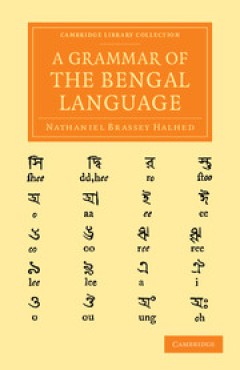
A Grammar of the Bengal Language
The language of Bangladesh, West Bengal and parts of Tripura and Assam, Bengali is an Indo-Aryan language originating from Sanskrit. With over 230 million speakers, it is the sixth most spoken language in the world today. Published in 1778, this was one of the first grammars of Bengali ever compiled. The English orientalist Nathaniel Brassey Halhed (1751–1830) prepared the work during his emp…
- Edition
- -
- ISBN/ISSN
- 9781139519878
- Collation
- -
- Series Title
- Cambridge Library Collection - Perspectives from the Royal Asiatic Society
- Call Number
- -
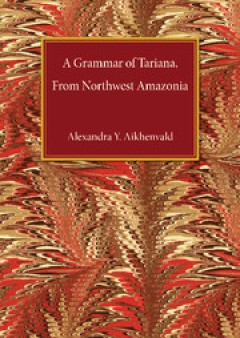
A Grammar of Tariana, from Northwest Amazonia
This is a comprehensive reference grammar of Tariana, an endangered Arawak language from a remote region in the northwest Amazonian jungle. Its speakers traditionally marry someone speaking a different language, and as a result most people are fluent in five or six languages. Because of this rampant multilingualism, Tariana combines a number of features inherited from the protolanguage with pro…
- Edition
- -
- ISBN/ISSN
- 9781107050952
- Collation
- -
- Series Title
- -
- Call Number
- -

A Government Out of Sight The Mystery of National Authority in Nineteenth-Ce…
While it is obvious that America's state and local governments were consistently active during the nineteenth century, a period dominated by laissez-faire, political historians of twentieth-century America have assumed that the national government did very little during this period. A Government Out of Sight challenges this premise, chronicling the ways in which the national government interven…
- Edition
- -
- ISBN/ISSN
- 9780511576324
- Collation
- -
- Series Title
- -
- Call Number
- -

A Geographical Survey of Africa Its Rivers, Lakes, Mountains, Productions, S…
James MacQueen (1778–1870) was a British geographer and also one of the most outspoken critics of the methods of the British anti-slavery campaign in the 1820s and 1830s. Although he never visited Africa, he became an acknowledged expert on the continent, through reading all available accounts, ancient and modern, as well as interviewing slave merchants while managing a sugar plantation in th…
- Edition
- -
- ISBN/ISSN
- 9781139034562
- Collation
- -
- Series Title
- Cambridge Library Collection - African Studies
- Call Number
- -

A Geographical and Commercial View of Northern Central Africa
James MacQueen (1778–1870) was a British geographer fascinated by the problem of the River Niger. He set out to try to establish (on the basis of accounts by explorers, traders and missionaries), that one and the same river flowed continuously through Africa and into the Atlantic Ocean, thus challenging long-established beliefs that African rivers either disappeared into the sand or terminate…
- Edition
- -
- ISBN/ISSN
- 9781139034579
- Collation
- -
- Series Title
- Cambridge Library Collection - African Studies
- Call Number
- -
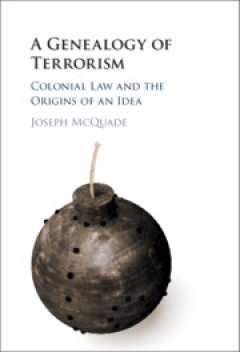
A Genealogy of Terrorism Colonial Law and the Origins of an Idea
Using India as a case study, Joseph McQuade demonstrates how the modern concept of terrorism was shaped by colonial emergency laws dating back into the nineteenth and early twentieth centuries. Beginning with the 'thugs', 'pirates', and 'fanatics' of the nineteenth century, McQuade traces the emerging and novel legal category of 'the terrorist' in early twentieth-century colonial law, ending wi…
- Edition
- -
- ISBN/ISSN
- 9781108896238
- Collation
- -
- Series Title
- -
- Call Number
- -
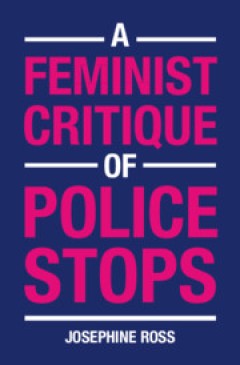
A Feminist Critique of Police Stops
A Feminist Critique of Police Stops examines the parallels between stop-and-frisk policing and sexual harassment. An expert whose writing, teaching and community outreach centers on the Constitution's limits on police power, Howard Law Professor Josephine Ross, argues that our constitutional rights are a mirage. In reality, we can't say no when police seek to question or search us. Building on …
- Edition
- -
- ISBN/ISSN
- 9781108697477
- Collation
- -
- Series Title
- -
- Call Number
- -
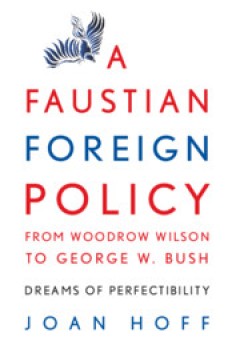
A Faustian Foreign Policy from Woodrow Wilson to George W. Bush
A Faustian Foreign Policy from Woodrow Wilson to George W. Bush critiques U.S. foreign policy during this period by showing how moralistic diplomacy has increasingly assumed Faustian overtones, especially during the Cold War and following September 11. The ideological components of American diplomacy, originating in the late 18th and 19th centuries, evolved through the 20th century as U.S. econ…
- Edition
- -
- ISBN/ISSN
- 9780511511592
- Collation
- -
- Series Title
- -
- Call Number
- -
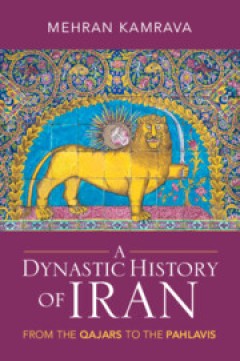
A Dynastic History of Iran From the Qajars to the Pahlavis
This rich dynastic study examines the political histories of Iran's last two monarchical dynasties, the Qajars and the Pahlavis. Tracing the rise and fall of both dynasties, Mehran Kamrava addresses essential questions about how and why they rose to power; what domestic and international forces impacted them; how they ruled; and how they met their end. Exploring over two hundred years of politi…
- Edition
- -
- ISBN/ISSN
- 9781009224628
- Collation
- -
- Series Title
- -
- Call Number
- -
 Computer Science, Information & General Works
Computer Science, Information & General Works  Philosophy & Psychology
Philosophy & Psychology  Religion
Religion  Social Sciences
Social Sciences  Language
Language  Pure Science
Pure Science  Applied Sciences
Applied Sciences  Art & Recreation
Art & Recreation  Literature
Literature  History & Geography
History & Geography